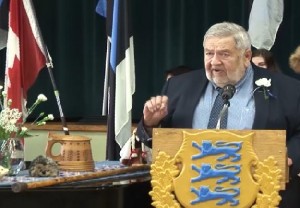
Russian media and Russian speakers in Estonia Estonian Life
Laas Leivat
Over the years, various Western observers have labeled ethnic Russians in the country as a potential fifth column, targeted against NATO and deployed as a pseudo-Donbass Kremlin-controlled insurgency, especially after Russia’s invasion of Ukraine.
The 340,000 ethnic Russians in Estonia, forming 27% of the population, do not constitute a homogeneous community. Approximately 90,000 own the so-called ‘grey passport’ (alien’s passport) of stateless residents – non citizens – who are seen as wanting to live in Estonia and being part of Europe.
According to the International Centre for Defence and Security, some 90,000 have Russian passports, but still want to remain in Estonia and within the EU. The remainder of the 340,000 have Estonian citizenship or EU passports.
In 2015 CNN correspondents interviewed 44 Russian speakers in five different Estonia cities. Although this research is thus anecdotal and not necessarily a reflection of the total Russian speaking community the answers from those interviewed were consistent. Some observations:
Russians of in Narva, Kohtla-Järve and Sillamäe, in north-Eastern Estonia self-identify culturally as Russians. They have relatives in Russia, visit often, have family members buried there. They distinguish between ‘homeland’ and ‘birthland’. Although both are important they don’t feel totally at home in either. They understand the social and political climate of Russia, but avoid any personal involvement.
The younger generation holds Russia to be a foreign country lake any other. They are impatient to leave, not for Tallinn or Moscow, but rather Berlin or London. The government is seen as somewhat distant and doesn’t earn their full trust.
The Russians of Valga are influenced more by Latvia, Ukraine and Belarus than by Russia and this makes the community more diverse. Issues associated with family, home, job are have a greater impact on Valga Russians’ opinions than what occurs and develops in Russia.
Although the subjects had Russian or Estonian citizenship, or were stateless this did not determine any ideological or social differences. (Pikemalt Eesti Elu 5.04.2019 paberlehes)
Arvamus
TRENDING
























